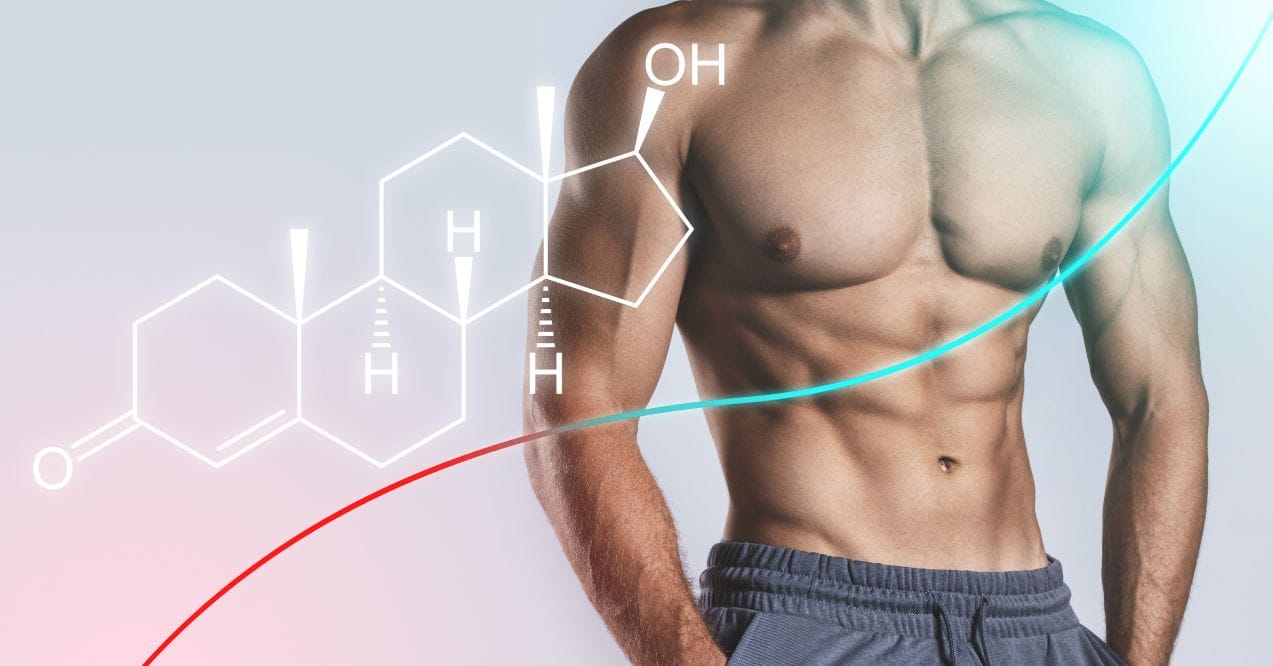Best Health Supplements for Men by Age for Daily Wellness
Discover the best health supplements for men to support strength, focus & longevity. Age smarter—take charge of your health now!


Being a man today means more than just staying fit. You must stay sharp, energetic, and resilient in a world that rarely slows down.
Most men aren’t getting enough essential vitamins and minerals like magnesium, vitamin D, and omega-3s, all crucial for testosterone, energy, brain health, and recovery. And by age 30, testosterone starts dropping, silently impacting strength, stamina, and drive.
That’s where targeted, science-backed dietary supplements come in.
This guide breaks down the best health supplements for men, personalized by age and health conditions, so you can build a smarter, stronger daily routine and feel your best at every stage of life. Let’s get started.
Why Supplements for Men’s Health are Essential
Nutritional needs shift as men age. From testosterone and energy support in your 30s to heart and brain health in your 50s and beyond, the best health supplements for men can help optimize performance and overall health.
Some Quick Tips to Keep in Mind
- Men over 40 are deficient in vitamin D, affecting testosterone, the immune system, and mood.
- Zinc deficiency affects sperm health, immune function, and testosterone regulation.
- Testosterone decreases after age 30, impacting energy, metabolism, and sexual function.
That’s why smart supplementation is not just about patching deficiencies; it’s about aging well, staying active, and feeling your best.
Best Supplements for Men by Age Group
Below is a tailored breakdown of the best supplements for men over 40, 50, and beyond, along with foundational nutrients every man should consider, regardless of age.
Best Supplements for Men’s Health in Their 20s and 30s
Your 20s and 30s are the foundation-building years — physically and mentally. This is the time to optimize performance, support hormone levels, manage stress, and build habits that support long-term health.
- Multivitamin: Covers daily nutritional gaps and supports energy production.
- Magnesium (Glycinate or Threonate): Helps with stress, sleep, muscle recovery, and blood sugar regulation.
- Vitamin D3: Supports testosterone, immune function, and mood stability.
- Zinc: Essential for testosterone production, skin health, and fertility.
- Ashwagandha: Helps reduce cortisol, boost testosterone, and improve recovery from training.
- Omega-3 (EPA/DHA): Supports brain development, focus, and inflammation control.
Men in their 20s often experience lower testosterone and higher stress when deficient in magnesium, zinc, and vitamin D — even if they feel “healthy” overall.
Top Supplements for Men Over 40
Testosterone levels, energy production, and cardiovascular function naturally begin to decline in your 40s. That’s when targeted supplementation becomes essential.
- Vitamin D3 + K2: Boosts testosterone; supports calcium regulation.
- CoQ10: Essential for heart and mitochondrial energy, especially if on statins.
- Magnesium: Aids in stress response, high blood pressure, and muscle recovery.
- Saw Palmetto + Zinc: Supports prostate health and urinary function.
- Omega-3s supplement: Reduce inflammation, support cognitive and cardiovascular function.
Best Supplements for Men Over 50
In your 50s, the focus shifts to protecting the brain, maintaining joint mobility, and managing blood pressure and cholesterol.
- Lion’s Mane improves cognitive function and reduces age-related memory decline.
- Vitamin K2: Improves calcium placement (bones vs arteries); reduces arterial calcification.
- Curcumin (Turmeric extract): Great for anti-inflammatory and joint support.
- Collagen peptides: Support skin, joint, and connective tissue health.
- Lycopene: An antioxidant that supports prostate and heart health.
Men over 50 are twice as likely to develop memory issues if Omega-3 and vitamin B12 intake is low.
The 10 Best Health Supplements for Men
1. Multivitamin
High-quality multivitamins act as daily supplements for men’s health, especially for those with inconsistent diets or a less-than-perfect healthy diet.
- Choose forms with methylated B12 and chelated minerals (like magnesium glycinate).
- Look for the best multivitamin for men over 40 that includes heart and prostate-supportive nutrients like selenium, vitamin E, and lycopene.
2. Vitamin D3 + K2
Essential for testosterone, bone health, mood, and immune defense.
- Vitamin D3 production declines by 13% each decade, meaning by age 70, your body makes about half as much as it did at age 20.
- K2 helps calcium go to bones, not arteries—ideal for heart and bone health.
3. Magnesium (Threonate or Glycinate)
Supports muscle function, sleep, nerve health, and boosts testosterone regulation.
- Stress, caffeine, and alcohol all deplete magnesium stores.
- A significant number of men have suboptimal levels.
4. Zinc & Selenium
Crucial for reproductive health, thyroid function, and immunity.
- Zinc is involved in over 300 enzymatic processes, including testosterone synthesis.
- Selenium supports sperm quality and prostate function.
5. Omega-3 Fatty Acids (EPA/DHA)
Helps reduce inflammation, supports cardiovascular health, and enhances brain function.
- Most men don’t eat enough fatty fish.
- Especially vital for men over 40 to reduce the risk of heart disease.
6. Coenzyme Q10 (CoQ10)
Boosts mitochondrial energy production and heart health.
- Levels drop with age and statin use.
- Especially helpful for men in their 40s and beyond.
7. Ashwagandha & Rhodiola (Adaptogens)
Support stress regulation, testosterone levels, and energy.
- Ashwagandha has been shown in studies to increase testosterone by 15% in stressed men.
- Rhodiola improves mental fatigue and stamina.
8. Lion’s Mane & Bacopa Monnieri
Increase memory, focus, and long-term brain health.
- Lion’s Mane supports neurogenesis (new brain cell growth).
- Useful for aging professionals, especially men over 50.
9. Saw Palmetto & Lycopene
Support urinary health and prostate size regulation.
10. Green Tea Extract or CLA (For Weight Loss Support)
Natural thermogenics that support fat metabolism.
- CLA (Conjugated Linoleic Acid) may help reduce body fat mass when combined with exercise.
When & How to Take Supplements for Best Results
| Supplement | Best Time | Take With Food? | Some Tip |
| Multivitamin | Morning | ✅ | Avoid coffee at the same time |
| Vitamin D3 + K2 | Morning or Lunch | ✅ | Take with a fatty meal |
| Magnesium | Evening | ✅ | Great before bed |
| Omega-3 | Lunch or Dinner | ✅ | Reduces fishy aftertaste |
| Ashwagandha | Night | ❌ | Helps reduce evening cortisol |
| CoQ10 | Morning | ✅ | Best for energy if taken early |
Common Mistakes to Avoid
- Overdosing on fat-soluble vitamins (A, D, E, K).
- Choosing cheap, poorly absorbed forms (e.g., magnesium oxide).
- Thinking multivitamins replace whole foods—they don’t.
- Ignoring potential side effects or drug interactions
- Skipping consultation—talk to a healthcare provider before starting new stacks.
Smart Supplementation for a Stronger, Healthier You
The right supplements aren’t about trends or quick fixes. They’re tools to help you show up stronger, sharper, and more resilient every day.
Whether you’re in your 20s, building your foundation, or over 50s, protecting your brain, heart, and hormones, targeted, age-specific best supplements for men’s health can fill the gaps that diet alone often misses.
Start with the essentials. Focus on quality. And stay consistent — because long-term vitality doesn’t come from doing more, but from doing the right things daily.
Related Reads
How to Increase Your Energy Levels: Expert Advice
Do Men Have Hormonal Cycles? A Month-Long Study Explained
You may need supplements if you have nutrient gaps, specific health conditions, or a limited diet. While not all men require them, it’s best to consult a healthcare professional to assess your needs based on lifestyle, age, and diet.
Supplements that offer real value include creatine for strength, omega-3 fish oil for heart and brain health, vitamin D, iron (if deficient), a quality multivitamin, powdered greens for nutrient support, and whey protein for muscle recovery.
Ashwagandha may support kidney health through its antioxidant and anti-inflammatory properties, but the evidence is still limited. Individuals with kidney conditions should consult a healthcare provider before using it, as effects can vary based on individual health status.
No single vitamin guarantees improved sexual health, but the following play key roles in hormone regulation, blood flow, and energy, factors that can support healthy sexual function when optimized.
• vitamin D
• B3 (niacin)
• B9 (folate)
• zinc
While needs vary, vitamin D is one supplement widely recommended for most people. It supports bone health, immunity, and mood, especially in regions with limited sun exposure, where deficiency is common. Always check levels before supplementing.
Five signs of vitamin D deficiency include
• Fatigue
• Muscle weakness
• Bone pain
• Frequent illness
• Low mood or Depression
These symptoms may be subtle, but shouldn’t be ignored—consider a blood test to assess you
Zinc supports immune function, wound healing, and cell growth. It’s essential for DNA synthesis, metabolism, and proper development. Zinc also contributes to skin health and may help maintain vision, making it vital for overall wellness.
Sign up for our Healthy Living newsletter!
Advertisement. This site offers health, wellness, fitness and nutritional information and is designed for educational purposes only. You should not rely on this information as a substitute for, nor does it replace, professional medical advice, diagnosis, or treatment. If you have any concerns or questions about your health, you should always consult with a physician or other health-care professional. Do not disregard, avoid or delay obtaining medical or health related advice from your health-care professional because of something you may have read on this site. The use of any information provided on this site is solely at your own risk.










